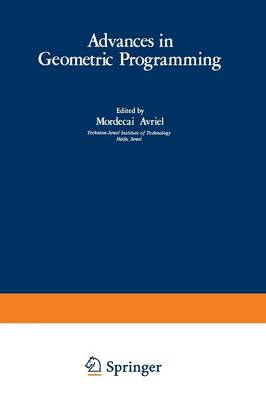In 1961, C. Zener, then Director of Science at Westinghouse Corpora tion, and a member of the U. S. National Academy of Sciences who has made important contributions to physics and engineering, published a short article in the Proceedings of the National Academy of Sciences entitled" A Mathe matical Aid in Optimizing Engineering Design. " In this article Zener considered the problem of finding an optimal engineering design that can often be expressed as the problem of minimizing a numerical cost function, termed a "generalized polynomial," consisting of a sum of terms, where each term is a product of a positive constant and the design variables, raised to arbitrary powers. He observed that if the number of terms exceeds the number of variables by one, the optimal values of the design variables can be easily found by solving a set of linear equations. Furthermore, certain invariances of the relative contribution of each term to the total cost can be deduced. The mathematical intricacies in Zener's method soon raised the curiosity of R. J. Duffin, the distinguished mathematician from Carnegie Mellon University who joined forces with Zener in laying the rigorous mathematical foundations of optimizing generalized polynomials. Interes tingly, the investigation of optimality conditions and properties of the optimal solutions in such problems were carried out by Duffin and Zener with the aid of inequalities, rather than the more common approach of the Kuhn-Tucker theory.
- ISBN13 9781461582878
- Publish Date 27 December 2012 (first published 31 May 1980)
- Publish Status Active
- Publish Country US
- Imprint Springer-Verlag New York Inc.
- Edition Softcover reprint of the original 1st ed. 1980
- Format Paperback
- Pages 460
- Language English
